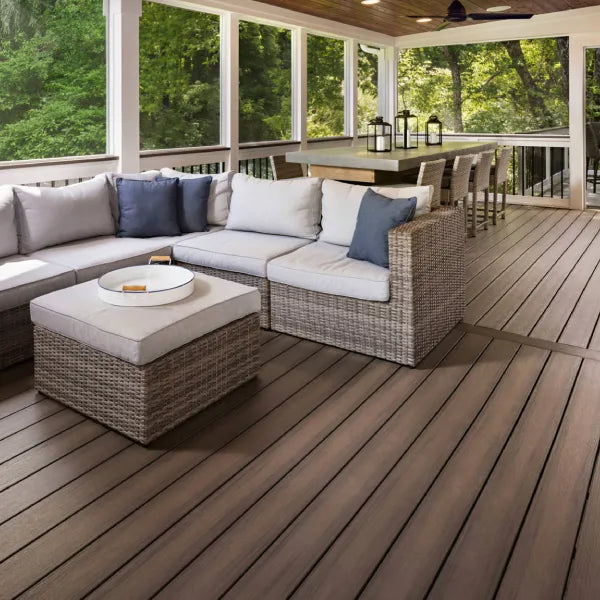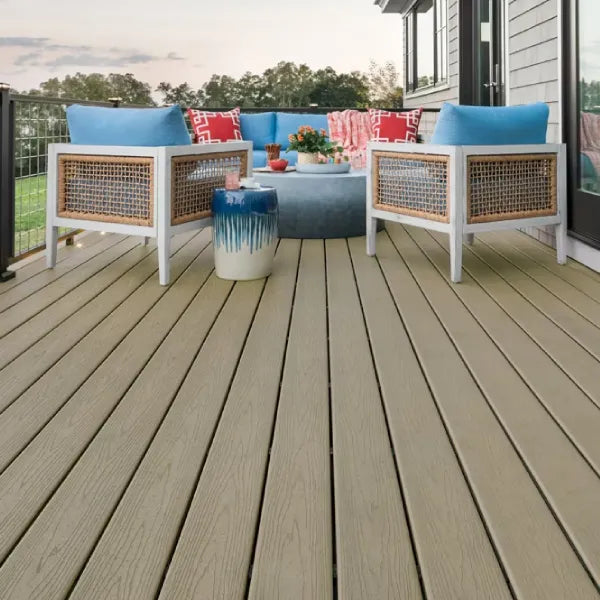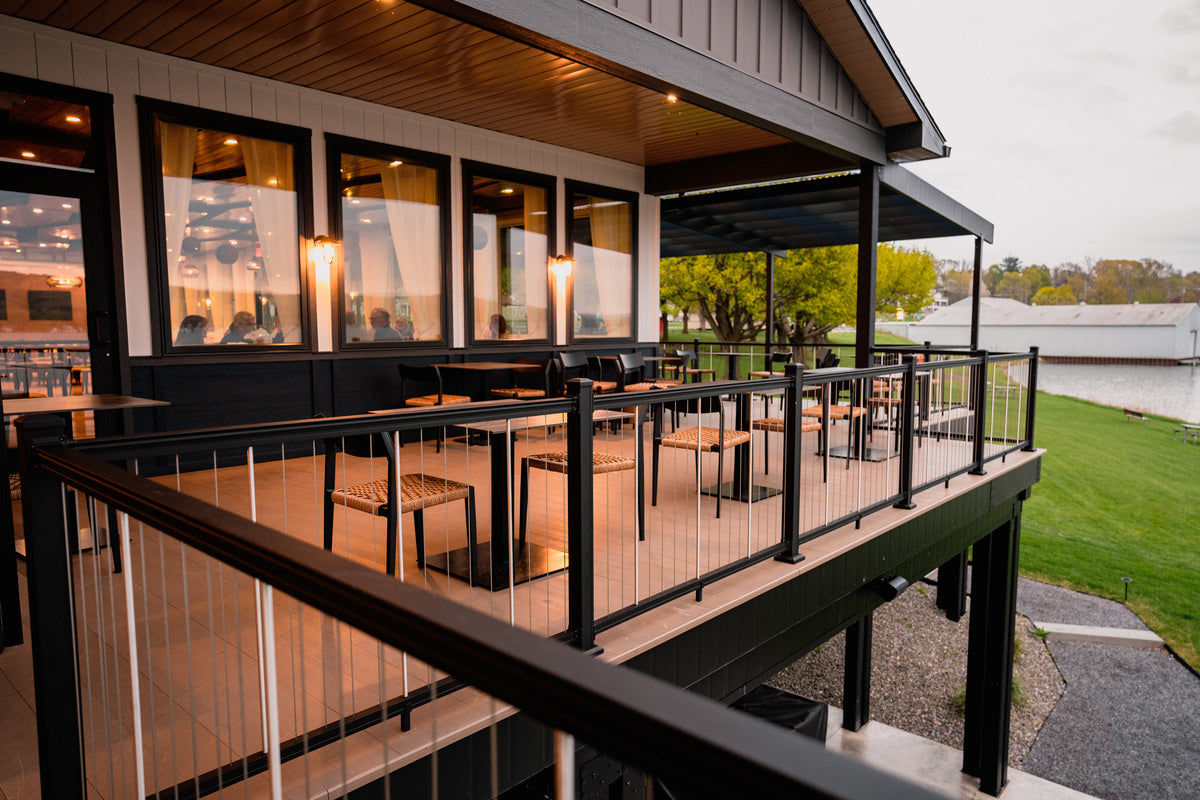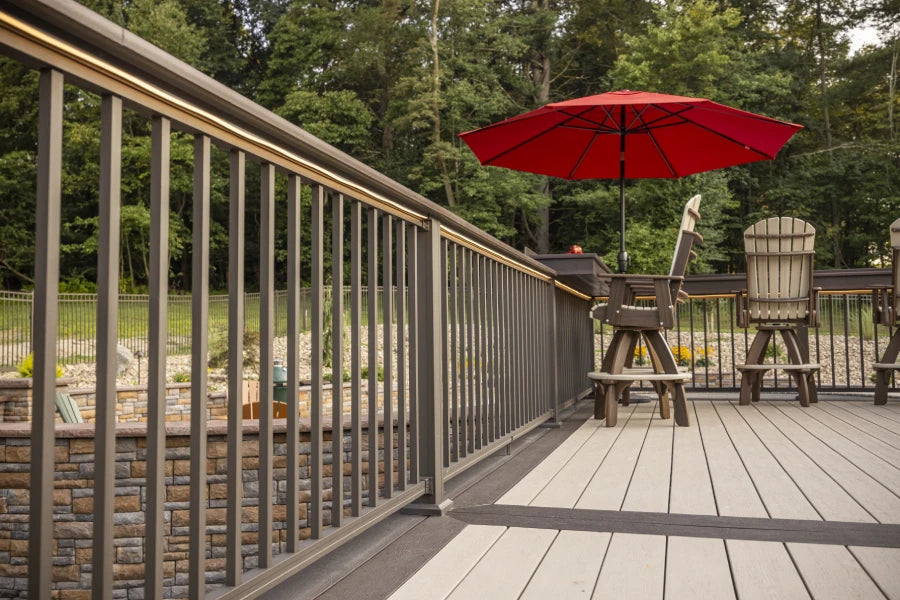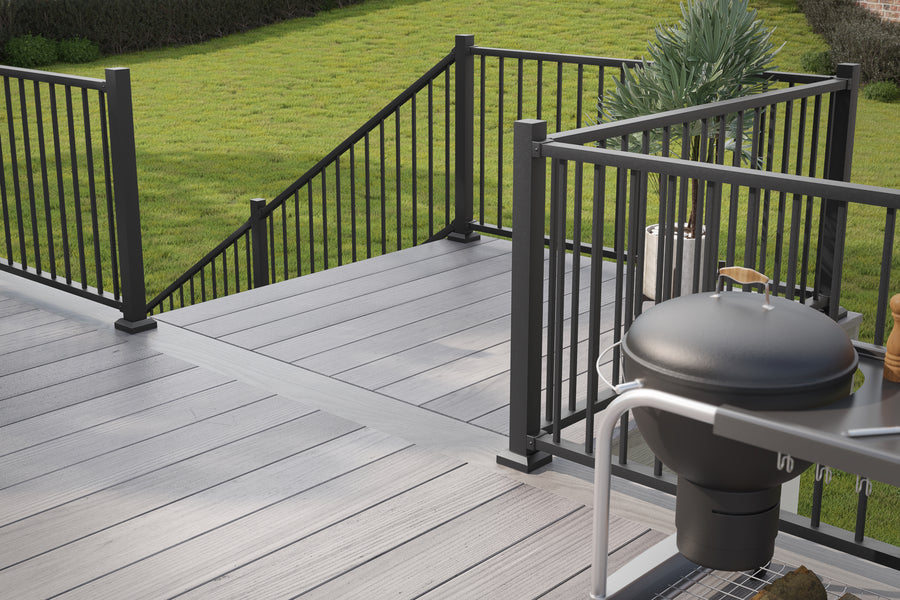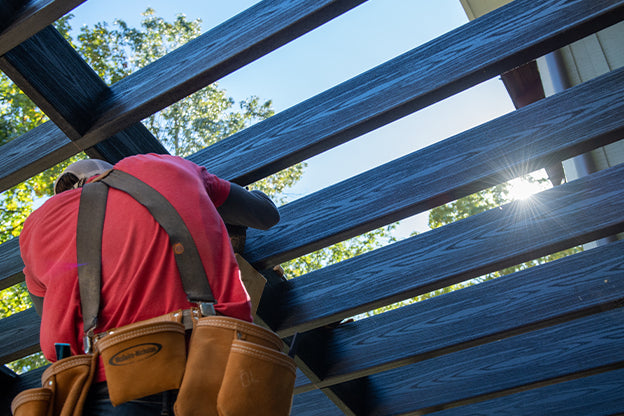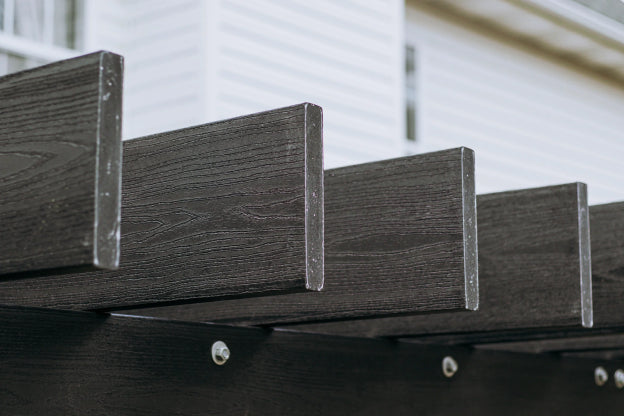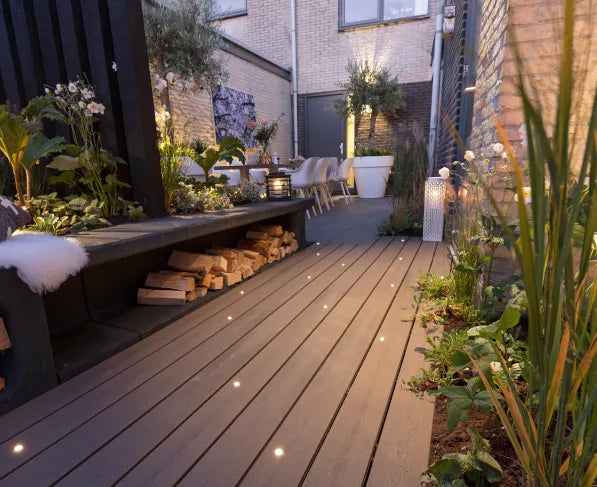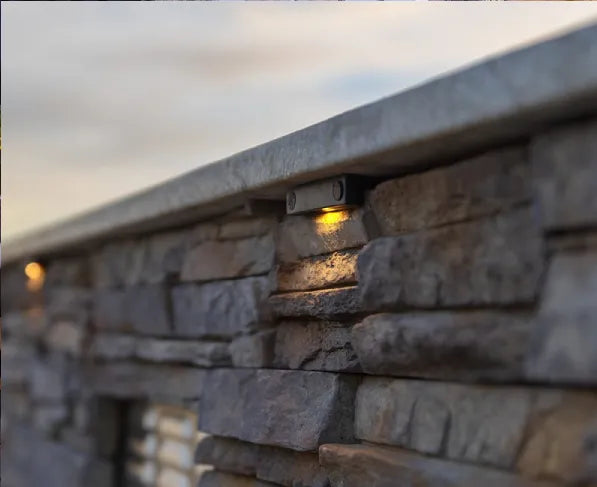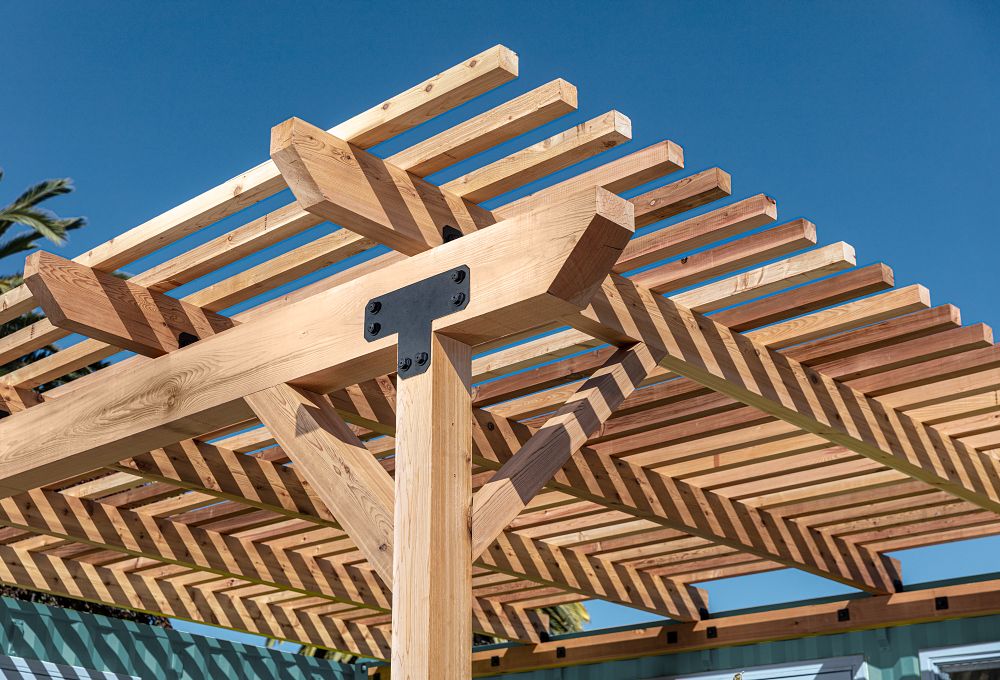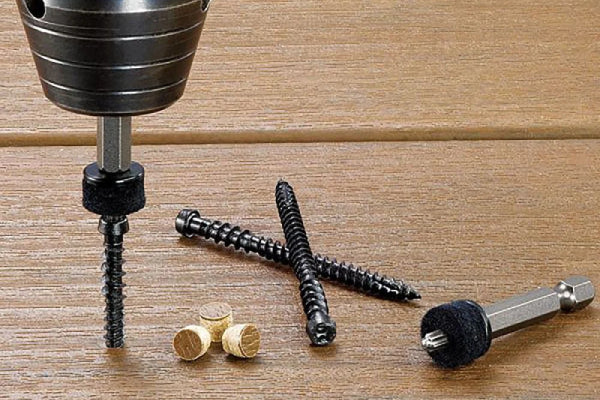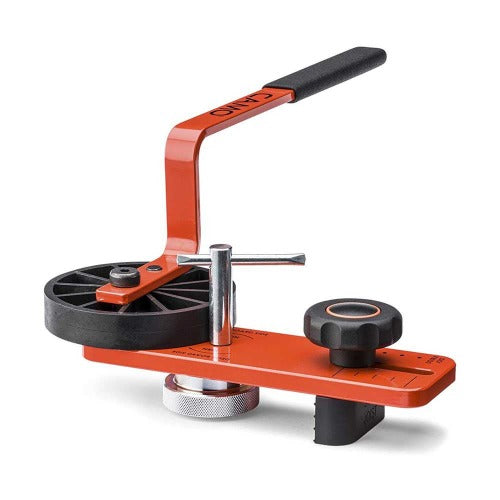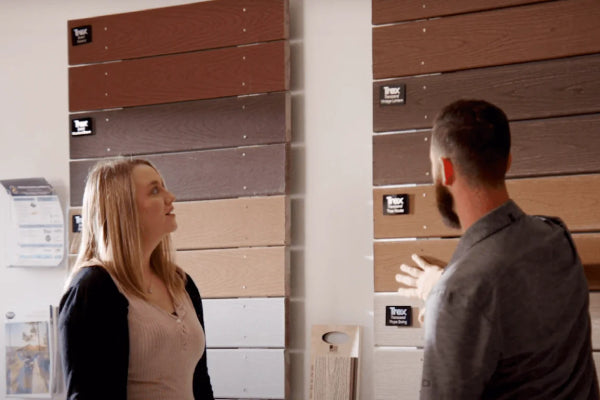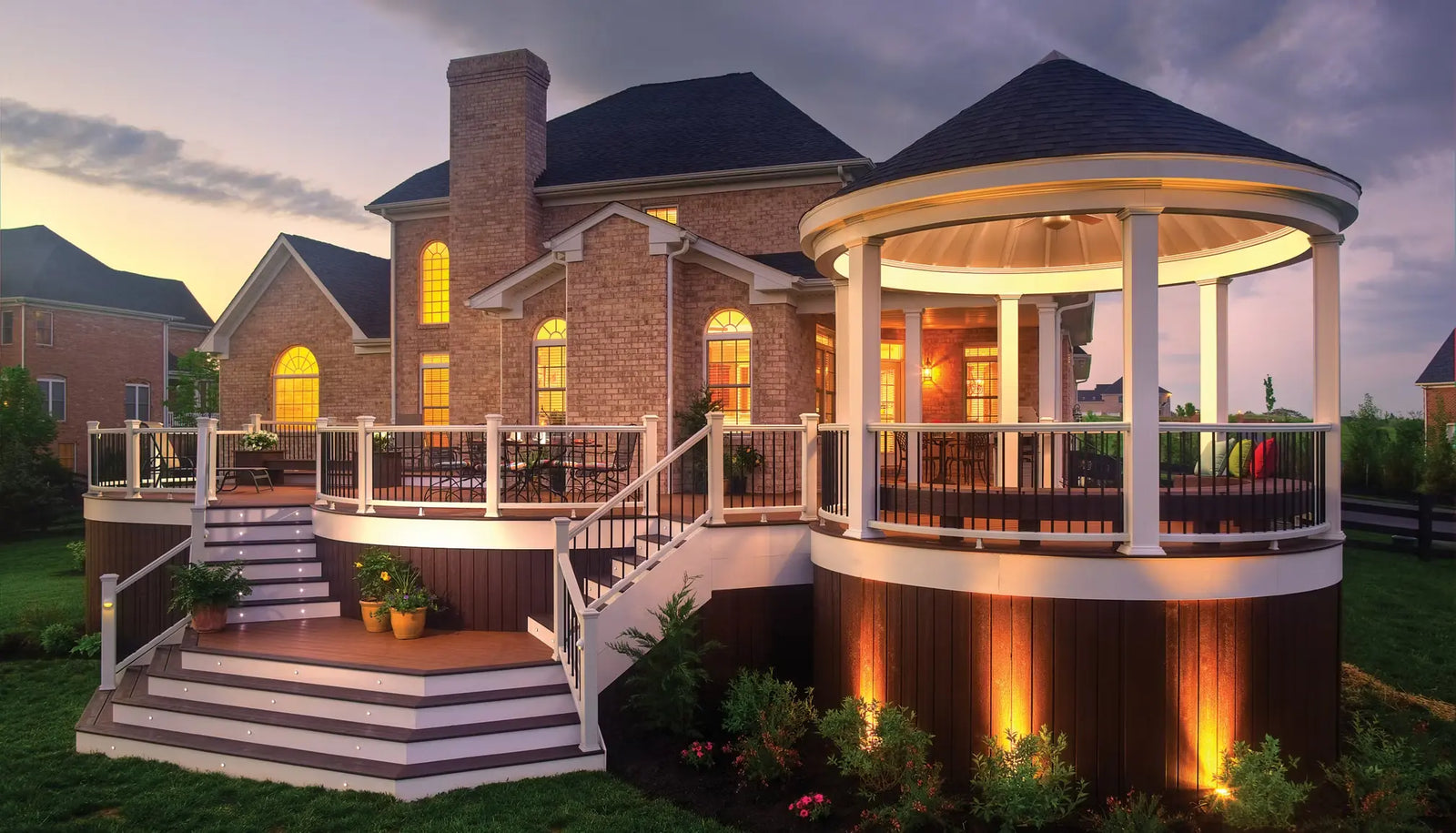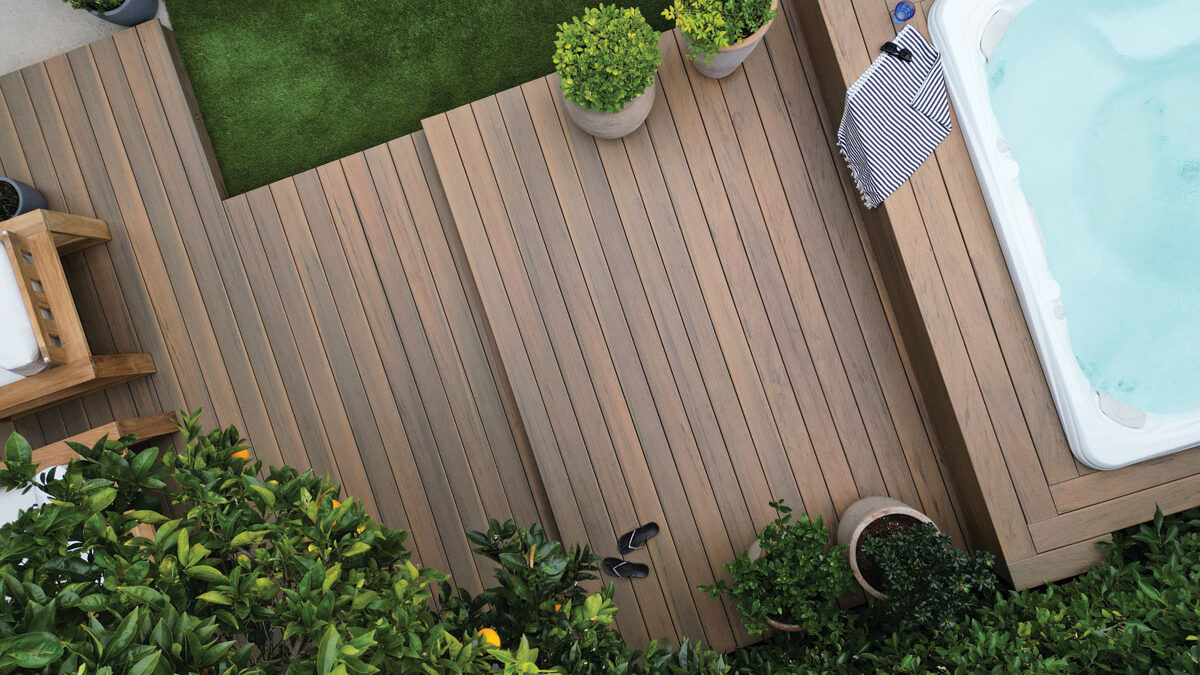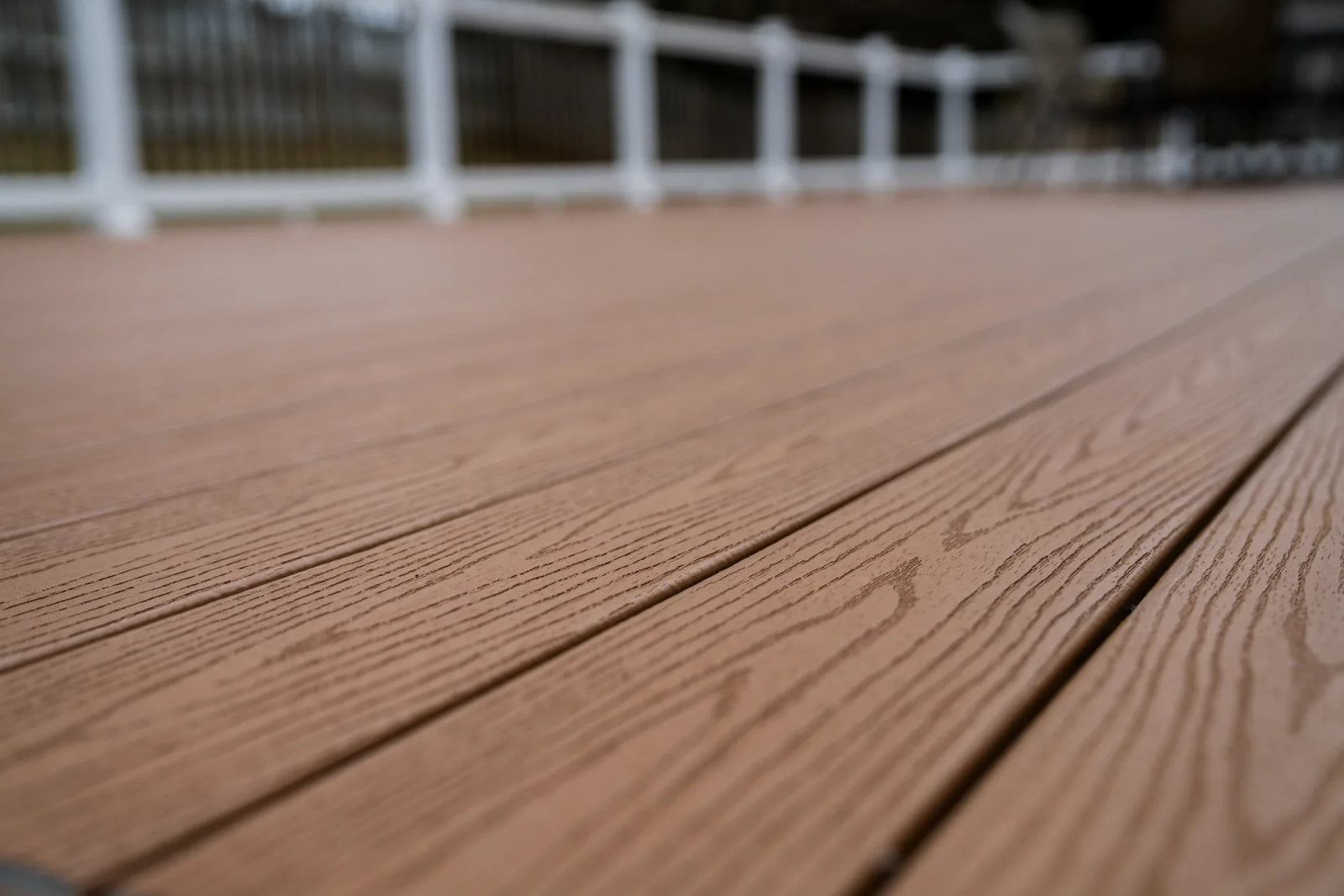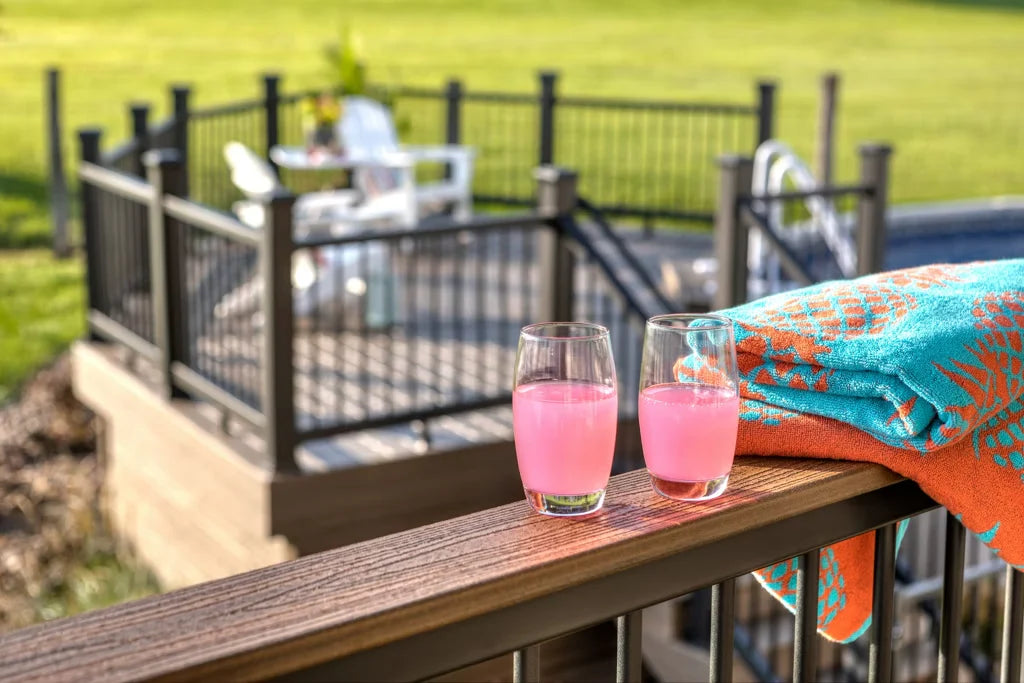Does Adding a Deck Really Boost Your Home’s Value?
If you’re thinking about making renovations on your home, you might be wondering—does a deck add value? The answer is a yes, but the actual impact depends on several factors, including materials, design, and your local housing market.
Beyond just adding resale value, a deck expands your home’s usable living space, making it more appealing to potential buyers. It’s also one of the more cost-effective ways to upgrade your home without a major renovation. Whether you’re considering adding a deck to a house for your own enjoyment or to increase your property’s value before selling, let’s take at look at the numbers, best practices, and tips to maximize your investment.
How Much Value Does a Deck Really Add to a House?
A deck is more than just an outdoor feature—it’s an investment. According to the 2024 Cost vs. Value Report, a wood deck addition costs an average of $17,615 and has a resale value of $14,596, meaning homeowners recoup about 82.9% of their investment. A composite deck addition, while requiring less maintenance, has an average return of 68.2%.
How Does a Deck Compare to Other Home Improvements?
If you’re weighing your options between a deck and other home upgrades, here’s how they compare in terms of ROI:
| Home Improvement Project | Average Cost | Average Resale Value | Cost Recouped |
| Deck Addition | $27,492 | $26,406 | 68.2% |
| Minor Kitchen Remodel | $27,492 | $26,406 | 96.1% |
| Bathroom Remodel | $25,251 | $18,613 | 73.7% |
| Roofing Replacement | $30,680 | $17,461 | 56.9% |
Source: The Journal of Light Construction, 2024 Cost vs. Value Report
While kitchen remodels tend to bring the highest return, does a deck increase home value enough to justify the investment? The numbers show that it does—especially when you consider that a deck not only adds resale value but also makes a home more enjoyable while you live in it.
What Factors Affect a Deck’s Value?
1. Deck Material Matters
Your choice of material significantly affects how much value a deck adds to your home.
-
Composite Decking
This is a top choice for homeowners looking for a low-maintenance with a long-term investment. Unlike wood, composite resists fading, mold, and warping, ensuring a consistently clean and polished look with minimal upkeep. Its durability and hassle-free maintenance make it a preferred option for buyers who value longevity and ease of care. -
PVC Decking
An ultra-low-maintenance option that offers superior resistance to moisture, mold, and stains. Unlike wood or composite, PVC decking is 100% synthetic, meaning it won’t absorb water, making it an excellent choice for coastal areas, pool decks, and high-humidity climates. Its lightweight yet durable construction ensures long-lasting performance with virtually no upkeep. -
IPE Wood Decking
A premium hardwood known for its exceptional strength and longevity. While it requires regular sealing and maintenance, it remains a sought-after choice for luxury buyers who appreciate its rich natural beauty and high-end luxury appeal. -
Structural Framing
A critical but often overlooked component. Opting for high-quality OC structural framing provides long-term stability and resistance to warping and rot, ensuring the deck’s foundation remains solid for years to come.
2. Location & Market Demand
Where you live plays a huge role in how much value a deck can add to a house. In warm-weather areas like Florida, Texas, or California, decks are highly desirable and can be a major selling point. Even in colder climates, a well-designed deck with seasonal features—like fire pits, heating lamps, or covered spaces—can turn an outdoor space into something you can enjoy year-round.
If you’re in an area with harsh winters, consider partially or fully enclosing your deck to get even more use out of it. Adding retractable enclosures, screened-in porches, or sunroom-style walls creates a cozy, four-season retreat that protects against snow and wind while still letting you soak in the outdoor feel. Features like insulated flooring, weatherproof materials, and built-in heating can make your deck a go-to spot no matter the season. It’s a small investment that keeps your outdoor space functional—and inviting—all year long.
3. Size & Layout
A deck should feel like a seamless extension of your home—not just an add-on. Think about how you’ll actually use the space and design it to fit your lifestyle.
- Go big if you can. A spacious deck (at least 12x16 feet) gives you plenty of room for furniture, grilling, and gathering without feeling cramped.
- Work with your landscape. If your yard has slopes or unique terrain, a multi-level deck can add dimension and make the most of your outdoor space.
- Think year-round. A wraparound or partially covered deck offers shade in summer, shelter in winter, and makes your deck more usable no matter the season.
The goal is to create a space that feels natural, functional, and inviting—a place where you’ll actually want to spend time.
4. Functional & Stylish Upgrades
A basic deck adds value, but a few thoughtful upgrades can turn it into a space you’ll love spending time in—and one that stands out to buyers.
- Built-in lighting keeps the space inviting after sunset. A must have if you enjoy spending quiet evenings outside or hosting friends.
- Added sun protection to your deck with pergolas and shade structures can help extend your hours outside and keep furry family members cool.
- High-end buyers love entertainment-ready spaces, so consider outdoor kitchens and built-in hosting features if if you love to entertain.
- Custom built-in seating makes the most of your space, creating a natural flow while reducing the need for extra furniture.
Expert Tips for Remodeling or Building a New Deck
If you’re planning to add a deck to your home or renovate an existing one, following these best practices will help you maximize your investment.
1. Select the Right Materials for Longevity
While pressure-treated wood is affordable, composite decking offers the best balance of low maintenance and durability. If you want a high-end look, IPE wood decking is a premium choice, but it requires more upkeep.
For structural framing, opt for Owens Corning structural lumber, a fiberglass-reinforced composite instead of wood ensures better longevity and prevents moisture-related issues.
2. Design for Functionality
Before construction, think about how you’ll use the deck:
- Will it serve as an entertaining space with seating, a fire pit, or an outdoor kitchen?
- Do you need shade solutions like a pergola or retractable awning?
- Should the deck connect to multiple access points of the house for better flow?
3. Ensure Proper Permits and Safety Compliance
Many areas have strict regulations on:
- Deck height and weight limits
- Railing requirements
- Distance from property lines
Always check with local building authorities before starting construction.
4. Think About Future Expansions
Even if you’re starting with a simple deck, plan ahead for potential upgrades. Consider leaving space for:
- A hot tub or spa
- Future outdoor storage solutions
- Additional seating or built-in planters
Ready to Build the Perfect Deck?
A great deck starts with the right materials. We have everything you need to create a beautiful, functional, and high-value outdoor space. Shop our decking collection and start building a deck that enhances both your home’s value and your everyday living experience.
 This item ships for FREE!
This item ships for FREE!